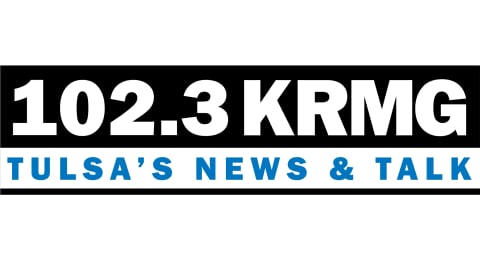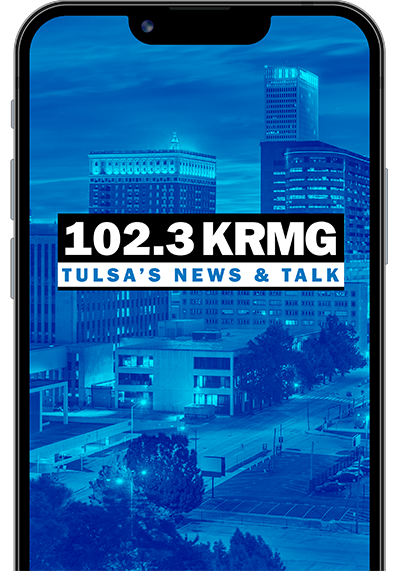TULSA, Okla. — The current long-time agreement between the State of Oklahoma and the Cherokee Nation that allows the state’s largest tribe to tag and title the vehicles of their tribal members is expiring at the end of the year.
Both Oklahoma Governor Kevin Stitt and Cherokee Nation Principal Chief Chuck Hoskin Jr. described the chances of renewing any agreement as “unlikely at this point”, “bleak”, and a “stalemate” if the compact had to be renewed today.
With the chance of a compact expiring when we change our calendars from 2024 to 2025, there are also new questions about if a Cherokee Nation license plate would be street legal outside of the historic bounds of the Cherokee Nation if no compact is put in place. That means possible tickets for some drivers with Cherokee tags simply driving to work and taking their kids to school.
“It’s unfortunate,” Stitt told FOX23 about the possibility of tickets being issued to people simply trying to take their kids to school or get to work. “We’re trying to resolve it.”
“We expect if this continues on the path that we are on, that we’re going to have to issue more guidance to our Cherokee tag holders in the near future towards the end of the year about how to proceed,” Hoskin said.
The current agreement being renewed as-is is unlikely.
Stitt has laid out specific terms that all tribes renewing their tag compacts need to abide by at a minimum in order to get him to sign on to anything they’re asking for.
He told FOX23 it is a one-size-fits-all approach for all tribes. Stitt recently agreed to new tribal tag compacts with the Chickasaw and Choctaw Nations using those very terms he hopes the Cherokee Nation will agree to.
Stitt’s terms are the following: (1) a 70-30 split of the money with 70 percent going to the State of Oklahoma, (2) Cherokee Nation license plates must be finable in the statewide law enforcement databases used by the Oklahoma Highway Patrol and others, (3) Cherokee Nation license plates must be recognizable in the PlatePay-PikePass system used by the Oklahoma Turnpike Authority when it comes to the paying of tolls, (4) the Cherokee Nation will pay back what has been, according to Stitt, a more than $8 million to possibly $16 million in unpaid tolls racked up by Cherokee Nation license plated vehicles, and (5) according to Hoskin, the Cherokee must make changes to how tribal vehicles are tagged and titled on Cherokee Nation sovereign land that would give the state more control over the process whether the vehicle leaves the Cherokee Nation or remains in it.
Hoskin said the governor was turning the Cherokee Nation license plate into a vanity plate similar to the tags fans of sports teams and special interests use now, and he was demanding the Cherokee Nation give up some of its authority over vehicles that drive on historic Cherokee lands. He also said Stitt was lying about Cherokee tags not being finable in law enforcement databases.
“I respect the Choctaw and Chickasaw Nations,” Hoskin said. “Those agreements work for them, but we have a system already in place right now that is working to the benefit of both the State and the Cherokee Nation at the same time.”
Stitt said tribes, not just the Cherokee Nation, currently can freely print up titles and tags for their citizens at deeply discounted rates or as he told FOX23, at whatever price they choose to set, and the money going to the state is not enough to maintain roads and bridges.
“This is about fairness,” Stitt said. “Why should an African American single mother struggling to make ends meet have to pay more for her tag and tolls than someone who is a Cherokee who is possibly like a rich doctor?”
Stitt, who pointed to his Cherokee heritage in the interview with FOX23 News, said this was not about his past tensions with the tribes over gaming, them endorsing his opponent in 2022, and other issues over criminal justice and sovereignty.
Hoskin said the compact Stitt proposed was less like a negotiation and more like a demand, a demand he said weakens the power of the Cherokee Nation to oversee and govern over and further improve its quality of life for its people and historic lands the tribe got after the Trail of Tears and forced removal of their true historic native lands.
“We are two sovereigns. This governor sees tribal sovereignty over our own land as a threat to him,” Hoskin said. “We use the money raised under our current compact to help school districts, local law enforcement, county commissioners build roads and bridges, and so much more. The money we collect right now is put right back to work maintaining and improving the quality of life in the Cherokee Nation.”
Stitt said the money raised should go to the benefit of all Oklahomans and said the State of Oklahoma was Oklahoma’s biggest investor in roads, bridges, and schools for everyone and not just those who live within the boundaries of the Cherokee Nation. He said the agreement he proposed to all tribes was for the betterment of all Oklahomans.
“I have to look at this from a position of fairness,” Stitt said. “It shouldn’t matter what race you are. We should all pay the same, and that money can be put to work for all of us.”
Stitt also questioned who was really a Cherokee driver saying the tribe could essentially give out its plates to anyone they wanted to.
“There is no blood quantum anymore for how much someone has to be a Cherokee,” he said.
Hoskin said Stitt was openly lying about Cherokee benefits and the Cherokee people to try to negotiate a compact in the media instead of properly negotiating channels and means.
One of the biggest issues Stitt points to on fairness is the payment of tolls on Oklahoma turnpikes. Stitt said Cherokee Nation tags are not finable by the OTA, and so they cannot figure out which tribal citizen to send PlatePay payments to.
Stitt points to an Oregon man who has an out-of-state tribal license plate that has racked up $400 in tolls on Oklahoma turnpikes and refuses to pay.
“We have to collect this money. We have bond obligations to fulfill,” he said. “If we want to make the turnpikes free for everyone, that’s fine, but we have to pay off these bonds first in order to do that.”
Hoskin said he is open to having a way OTA can use PlatePay on Cherokee tags, but he said back payments were the problems of state lawmakers who set up a system they didn’t fully study or think about.
“The Cherokee Nation doesn’t owe this money. Across the state, and this is true of all states that run PlatePay type systems there is a degree of nonpayment. We didn’t create the PlatePay problem. That’s a problem of its own creation. Remember, we didn’t create the PlatePay problem, that was created because the state either didn’t understand or it didn’t occur to them to engage with tribes on that issue. Then they shifted this system that reads the plates, and there’s no data sharing with the Oklahoma Turnpike Authority. That’s not something we did. That’s something the state did. Now through their neglect there is an inability to collect,” Hoskin said.
Hoskin said the previous systems in which cash tolls were collected never had an issue with tribal tag drivers not paying tolls.
When it came to back payments, he said he questioned the accuracy of the numbers. Hoskin said the governor’s demands for back payments from the tribe instead of those who drove on the turnpikes was unreasonable.
The biggest question the average driver with a Cherokee Nation license plate faces, especially Cherokee Nation drivers who don’t live within the boundaries of the Cherokee Nation, is what will happen on January 1, 2025, if there is no new agreement.
Hoskin said more guidance will be issued as the date approaches but also told FOX23, “nothing is going to change when it comes to registering vehicles within the Cherokee Nation. We will still issue titles and tags.”
Stitt, however, warned local law enforcement may write tags for unpaid taxes similar to what was seen in other parts of the state last year when other tribes had compacting issues with the state but still issued tags.
Tribal drivers who committed traffic violations outside of their tribe’s historic boundaries were issued two tickets.
For example, one for something like a speeding infraction which caused the initial traffic stop and a second for unpaid taxes for driving on a road paid for by the State of Oklahoma who did not receive a portion of the sale of the tribal tag in use.
The Oklahoma Highway Patrol cited a court opinion from the 1990s that affirmed that practice, and Attorney General Gentner Drummond said though he disagreed with the practice, double tickets were able to be legally carried out based off of that old ruling that sat dormant for years until just recently.
“It could happen, but that will be up to local law enforcement on what to do if we can’t get an agreement,” Stitt said about tickets for Cherokee tags.
But complicating ticket writing to tribal tags is what is known as The Hooper Case.
A tribal citizen, citing the U.S. Supreme Court’s McGirt Decision on how tribal citizens are handled by state, county, and local law enforcement ruled tickets given to tribal citizens on tribal land by an entity like Tulsa Police are void because only tribal and Federal governments had to deal with crimes committed by tribal citizens, even something small like a traffic infraction.
Some are wondering if the Cherokee compact could simply expire, and coupled with the Hooper case, tickets would be written but they would be worthless and unenforceable.
It would also open the door for the Cherokee Nation to continue to issue titles and tags to their citizens, and since no agreement was in place, the Cherokee Nation could keep everything, and the State got nothing.
While Hoskin didn’t get into the Hooper case with FOX23, he pointed out the expired hunting and fishing compact as an example of what happens when compacts fail.
“We had something in place that was working well for the tribes and the benefit of the State of Oklahoma at the same time with hunting and fishing compacts,” Hoskin said. “It worked well for everyone, and everyone shared in the benefits of it. Now we have nothing in place. This governor let that expire, and we aren’t working together to get the best outcome on hunting and fishing for all Oklahomans. There’s just nothing happening at all with that anymore.”
Both Stitt and Hoskin said they believe negotiations will go down to the wire, and even then, they weren’t sure something could be agreed to at the last minute, especially during the holiday season at the end of the year.
You can watch FOX23′s interview with Gov. Stitt below:
9:01 Video: Gov. Kevin Stitt joins FOX23 to discuss expiring tribal tag compact
You can watch FOX23′s interview with Chief Hoskin below:






